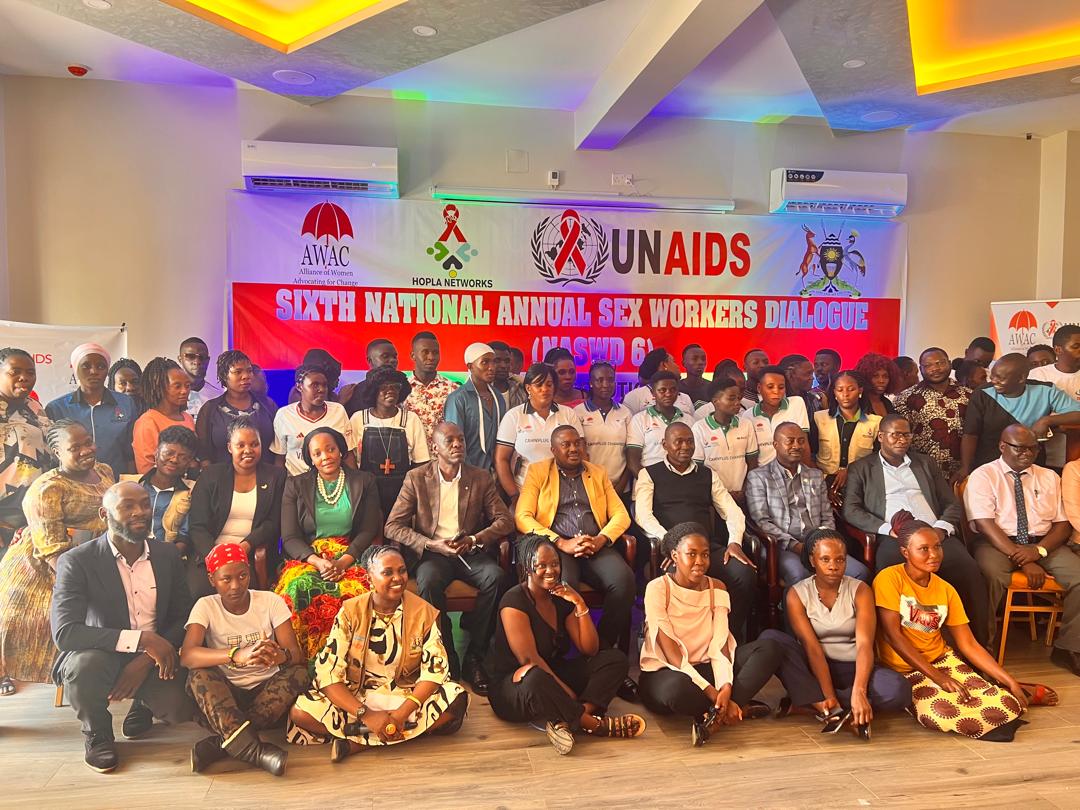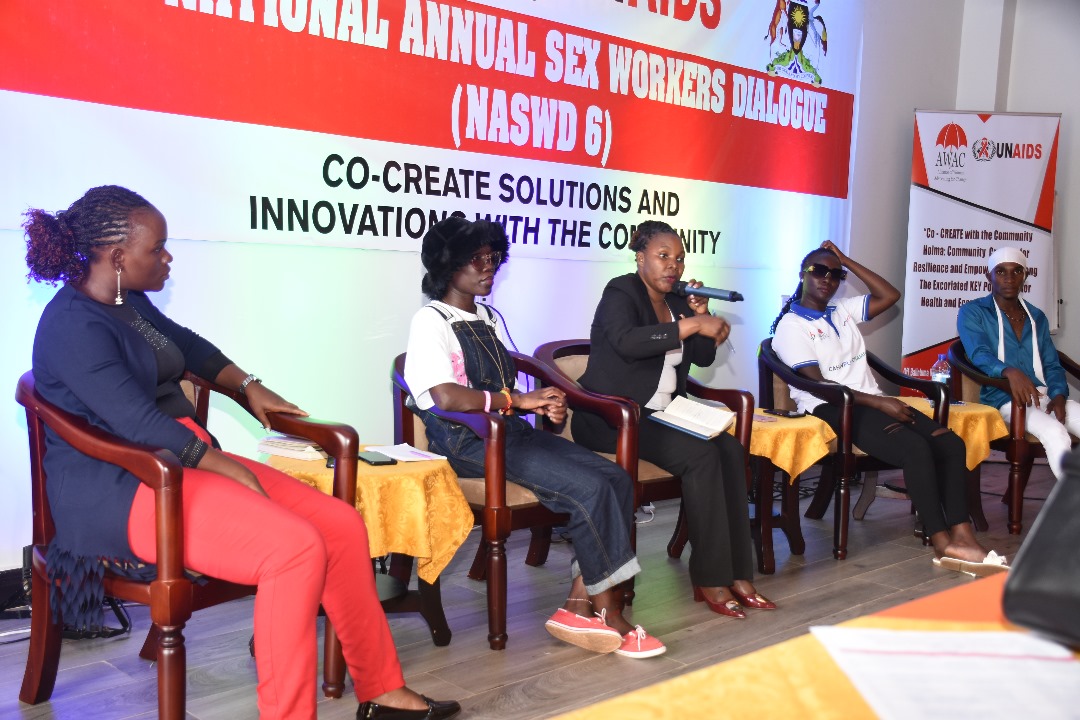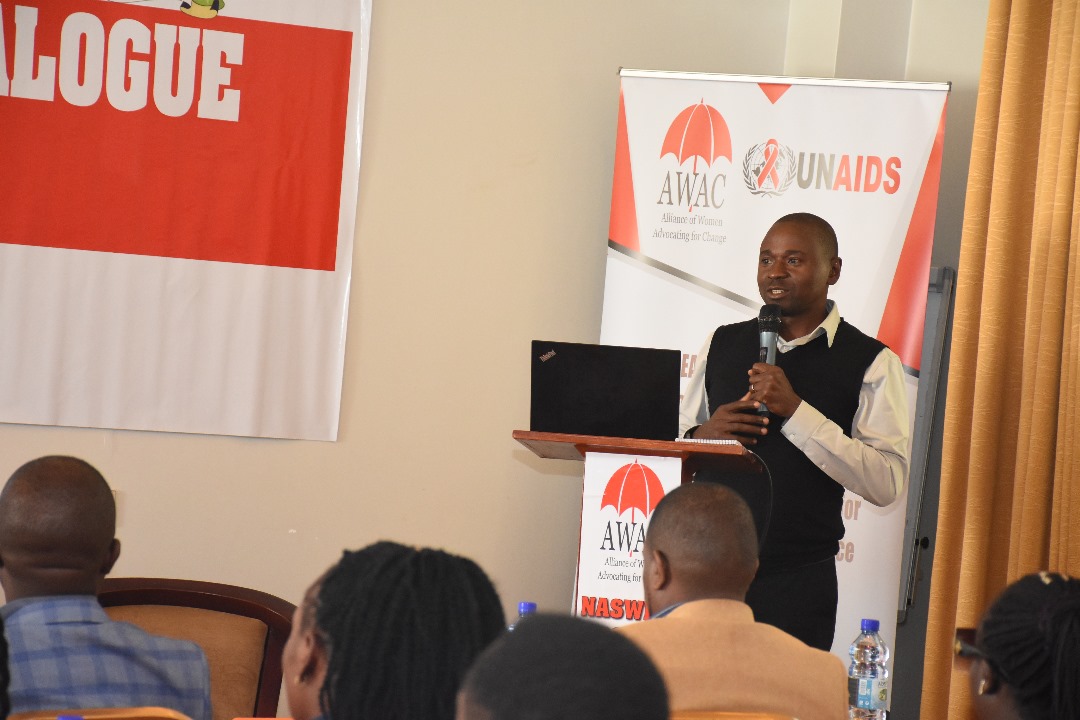
HOIMA – A recent incident in Hoima has highlighted the ongoing struggle against HIV/AIDS discrimination in Uganda. Ms. Kobusinge Daphine, a 39-year-old single mother of four, was fired from her job as a laundry attendant after her employer – Summa, a Turkish company operating in Hoima discovered her HIV status.
She explains that she acquired her job on August 1, 2024, however, after barely a month at work, her bosses brought medical personnel and imposed mandatory HIV/AIDS tests on the employees.
“They asked us about our health statuses and I told them I have been on ARVs for seven years. They went ahead and took my blood together with my colleagues’.”
“The next day, I heard the manager – a Turkish man yelling my name – who is Daphine, who is Daphine? We no longer need her, tell her to go to the accountant, pick up her money, and leave,” she narrated she was fired because of her medical results.
This incident has sparked concerns about stigma and discrimination against key populations, including sex workers.
According to Ms. Sarah Nakku from UNAIDS Uganda, stigma and self-stigma remain significant barriers in the fight against HIV/AIDS.
Speaking during the Alliance of Women Advocating for Change – AWAC’s National Sex Workers’ Dialogue (NASWD) – an annual platform that brings together rural and peri-urban sex workers, marginalized communities, and key stakeholders to connect, share ideas, and collaborate on Tuesday in Hoima, she emphasized that community-led initiatives are crucial in addressing these challenges.
“So stigma and discrimination are key issues highlighted here in Hoima among key populations and sex workers.”
She explained that with issues of stigma, any epidemic cannot be controlled, because people with self-stigma will not access medicine, fearing people knowing their status and, therefore, “will not suppress their viral load and therefore transmit HIV to others.”
Besides sex workers, Nakku revealed that there is a large number of young people especially Adolescents contracting HIV.
“We registered 38000 new infections in 2023 and young people (15-24 years) contribute 80% of that. Out of that 80%, women take up to 3 to 4 quarters.”
She attributed this to the ‘singular way’ of handling the health perspective in the country. According to her, the countries that have done well to reduce HIV new infections among Adolescents and young people have used a double-prone strategy – like maintaining a girl child at school up to the secondary school level.
UNAIDS official also called for equipping a girl child with information on sexuality education (life skills) which will help her to be assertive and be able to make informed choices and also highlighted the need for comprehensive health and socioeconomic services for key populations, including sex workers.
AWAC’s Executive Director, Ms. Macklean Kyomya, noted that there is a growing HIV prevalence in Hoima and a weak leadership among sex workers in the district. She called for stakeholders to come together to find a lasting solution to combat HIV/AIDS.
Due to oil and the construction of airport projects in the area, Kyomya says there is an increased population in the district and increased sexual interactions, calling on all stakeholders to come together and come up with a lasting solution as far as fighting HIV/AIDS is concerned.
As AWAC, she says they have come up with different empowerment forms for the key populations like the Community Health and Livelihood Enhancement Group – CHLEG, to help female sex workers adhere to ARVs and prep but also ensure that there are low or no more HIV infections amongst them.
Through CHLEG, Kyomya says many of them have had a chance to save and borrow for different issues like paying school fees for their children among others.
She also called for the removal of criminal prosecution of sex work – noting that decriminalizing sex work means sex workers are more likely to live without stigma, social exclusion, and fear of violence. She urged authorities to prioritize the protection of marginalized women, including sex workers, who are disproportionately exposed to multiple and newer forms of targeted violence and therefore victims in this matter.

Peter Mudiope from the Ministry of Health emphasized that stigma associated with key populations has been a major barrier to accessing healthcare. He stressed the need for interventions to reduce stigma and increase access to healthcare services for key populations.
He also says fear of legal repercussions has led many key populations to avoid healthcare facilities which has resulted in a significant drop in the uptake of services such as HIV testing, PrEP, and ART.
“Healthcare providers are often hesitant to offer services to key populations due to fears of legal consequences or being labeled as supporters of illegal behaviors. This has created a gap in service provision, particularly in the areas of HIV prevention and care.”
Mudiope says interventions must focus on reducing stigma in identified hotspots; including training healthcare providers to offer non-judgmental care and creating awareness programs that challenge harmful stereotypes about key populations.
He also noted that there is a need to increase the number of safe spaces where key populations can access healthcare services without fear of stigma or discrimination. “This may involve establishing more drop-in centers (DiCs) and ensuring that these facilities are adequately resourced.”
He tasked the Government and other stakeholders to allocate resources to enhance the capacity of existing health facilities to serve key populations; including providing sufficient supplies of PrEP, ART, and other essential health commodities.
He tasked AWAC and other stakeholders to advocate for the repeal or amendment of laws that criminalize key populations and hinder their access to healthcare services. “Policies should protect the rights of key populations and ensure their access to non-discriminatory healthcare.”
The National Sex Workers’ Dialogue (NASWD) is an annual platform that brings together sex workers, marginalized communities, and stakeholders to address challenges faced by key populations. This year’s theme focuses on co-creating solutions and innovations with the community to address the challenges faced by sex workers and other key populations in accessing comprehensive health and socioeconomic services in Hoima.
The NASWD platform provides a safe space for sex workers and other key populations to share their experiences and spotlight their needs and priorities. Attendees include sex workers with multiple vulnerabilities, other marginalized groups, and a multidisciplinary team of stakeholders from districts, Ministry of Health, Parliament, Government, Law and Human Rights institutions, NGOs, media, health practitioners, and activists.
This diverse gathering fosters a rich exchange of perspectives, enabling the development of critiques, innovative ideas, and concrete solutions together with the community. By bringing together those most affected by marginalization and those with the power to effect change, this event aims to amplify marginalized voices, promote better access to health, social and economic services, and drive meaningful change in service delivery for key populations in Hoima.

Ms. Kobusinge Daphine’s story is a stark reminder of the challenges faced by key populations in Uganda. After being fired from her job, Daphine experienced stigma, discrimination, and shame. She fainted and developed a fever, unable to sleep due to the trauma. Her experience highlights the need for urgent action to address stigma and discrimination against key populations.
UNAIDS and AWAC are working together to address these challenges. They are implementing initiatives to empower key populations, including sex workers, and provide them with access to comprehensive health and socioeconomic services. These initiatives include training healthcare providers to offer non-judgmental care, creating awareness programs to challenge harmful stereotypes, and establishing safe spaces for key populations to access healthcare services without fear of stigma or discrimination.
The NASWD platform is a crucial step towards addressing the challenges faced by key populations in Hoima. By bringing together stakeholders and key populations, the platform provides a unique opportunity to co-create solutions and innovations that address the specific needs and priorities of key populations.
In conclusion, the fight against HIV/AIDS discrimination in Uganda requires urgent action. Stigma and discrimination against key populations, including sex workers, remain significant barriers to accessing healthcare. Community-led initiatives, such as the NASWD platform, are crucial in addressing these challenges. By working together, we can promote better access to health, social and economic services, and drive meaningful change in service delivery for key populations in Hoima.
By mandelapmldaily@gmail.com/+256789673513





